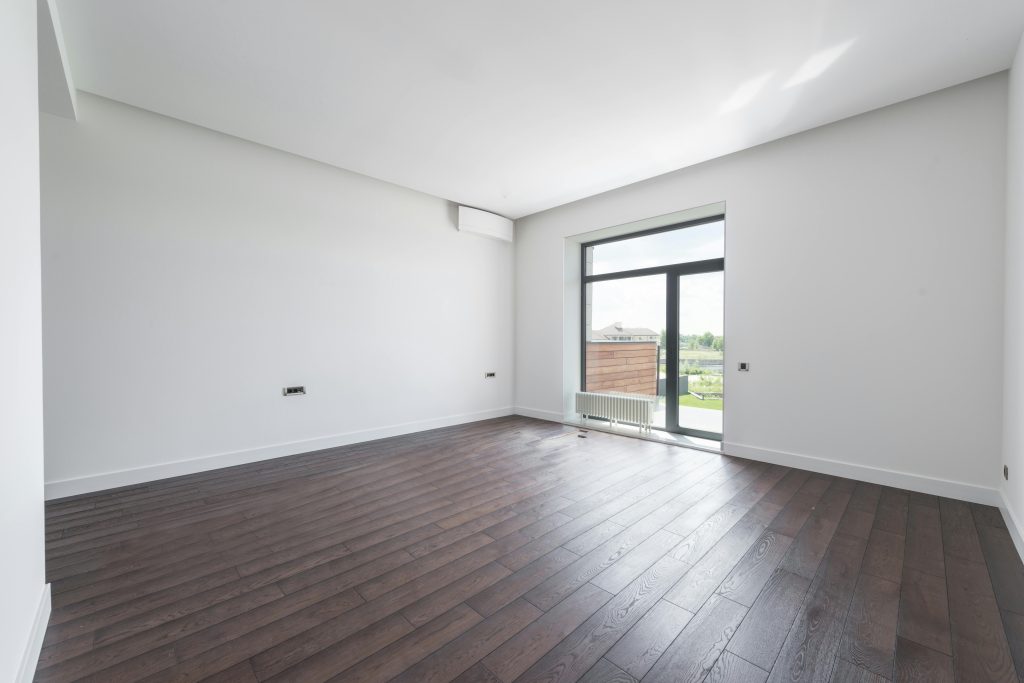Spoiler alert: Legally, you can sell a house the day after buying it. But practically? It’s not always that simple.
Whether you’re facing an unexpected life change, a touch of buyer’s remorse, or a property that’s more hassle than it’s worth, here’s what you need to know before sticking that ‘For Sale’ sign back in the ground.
Is There a Legal Minimum Time Before You Can Sell a House?
Good news: there’s no legal time limit stopping you from selling a property the moment it’s yours.
That said, there are practical hurdles to watch out for.
Land Registry Lag Can Slow Things Down
Once contracts are exchanged and the purchase completes, you’re the legal owner. However, the HM Land Registry can take weeks – sometimes months – to update the official register with your name.
This delay won’t stop you selling, but it could:
- Slow down the conveyancing process
- Raise eyebrows from cautious buyers
- Require extra paperwork from your solicitor
If you’re planning to buy and flip within weeks, brace for some admin delays. Check the Land Registry’s processing times to get a sense of current delays.
Selling New Builds? Check for Developer Clauses
Some new-build properties come with resale restriction clauses – typically preventing you from selling within 6 to 12 months of completion.
Why? Developers want to protect the value of homes on the estate while they are selling units, and they don’t want competition from you. A quick sale (potentially at a loss) could drag down everyone’s resale value.
Action step: Dig out your purchase agreement or chat with your solicitor to confirm any restrictions.
Mortgage Restrictions that Might Prevent Immediate Sale
Even if you’re legally free to sell, your mortgage lender might make it tricky – or costly.
Let’s break down the key mortgage-related barriers you could face.
Early Repayment Charges (ERCs)
This is the big one.
Most fixed-rate or tracker mortgages come with early repayment charges (ERCs) for the first 2 to 5 years.
These penalties can hurt.
Typically rates are scaled between 1% to 5% of your outstanding loan: The more years remaining on your mortgage, the higher the rate, so an immediate sale will likely result in maximum penalty.
This could cost thousands of pounds to exit early
Example:
If you’ve got a £250,000 mortgage and repay it within the first year, a 5% ERC means a £12,500 hit. That’s before you’ve even listed the property.
What to do:
- Check your Key Facts Illustration (KFI) or mortgage offer letter.
- Look for the section on “Early repayment or redemption terms.”
If you’re in the fixed-rate period, you’re likely on the hook for ERCs.
Porting the Mortgage
Some lenders let you port your mortgage – transferring it over to a new property. This can help you:
- Avoid ERCs
- Keep your existing interest rate
But here’s the catch:
- You’ll need to reapply
- Lenders will fully reassess your affordability and credit history
- Not all mortgages are portable
Porting isn’t a guaranteed workaround, so check with your lender first. You may find it useful to visit Money Helper for guidance on mortgage portability.
Remortgaging Obstacles
Thinking of switching lenders before selling? It’s not always straightforward.
Selling early can complicate remortgaging because:
- Your loan-to-value (LTV) ratio may still be high
- You haven’t built up enough equity
- You might not pass affordability checks in today’s tighter market
Bottom line: Mortgage terms can trap you, even if you’re ready to sell. Always read the small print before making a move.
Capital Gains Tax Implications (for Non-Primary Residences)
If the property wasn’t your main home the entire time you owned it, HMRC might want a slice of your profit.
This is where Capital Gains Tax (CGT) comes in.
When CGT Applies
You won’t pay CGT if:
- The home was your main residence the whole time you owned it, or
- You qualify for Private Residence Relief
But if the property is:
- A second home
- A buy-to-let
- A renovation project
- Or briefly your home but not for the full period
…you could be liable for CGT.
Note:You can offset “allowable expenses” against CGT including stamp duty and legal fees
Example Calculation
Let’s say you flipped a second home within 6 months:
- Bought for £200,000
- Sold for £220,000
- Profit: £20,000
For 2025, the CGT tax-free allowance is £3,000. Assuming you’re a higher-rate taxpayer (40% income tax bracket):
- £20,000 – £3,000 = £17,000 taxable gain
- 24% (CGT rate for residential property) × £17,000 = £4,080 in CGT
That’s a chunky tax bill for a quick turnaround.
This calculation doesn’t factor in allowable expenses, which could offset the CGT bill considerably depending on how much you paid for expenses.
Pro tip: If it was your main home for part of the time, you may qualify for partial Private Residence Relief. Speak to an accountant or tax adviser before listing. Check HMRC’s guidance for the latest CGT rules.
How Selling Quickly Affects Property Value
Think you can pop the house back on the market and get what you paid for – maybe more?
Not always.
Selling soon after buying can raise red flags.
Undervaluation Risk
Buyers and estate agents aren’t daft. If your home’s back on the market within months, they’ll wonder why. Online property marketplaces often show the last sale price and the date so it will be crystal clear to everyone that you are selling immediately after buying.
Buyers and estate agents might:
- Assume you’re desperate to sell
- Down-value it to reflect ‘forced sale’ conditions
- See it as a distressed asset – even if it’s not
This can lead to lower offers. Even if you’ve renovated, you might not recoup costs. Not all renovations increase the property value enough to offset the renovation cost.
Here’s a guide on choosing between renovating vs selling as is.
Also, check out this guide on the cost of renovating a house, to give you a rough idea before you start.
Buyer Suspicion
Buyers will ask: “Why is this house back on the market so soon?”
Fair question. Early resales can signal:
- Structural or legal issues
- Neighbour disputes
- Survey surprises
- Unaffordable bills or unexpected costs
Even if there’s an innocent reason (like a job move), suspicion can:
- Spook serious buyers
- Slow down the sale
- Lead to cheeky lowball offers
Quick tip: Be transparent about your reason for selling (e.g., “Relocating for work”) and provide recent survey reports to ease buyer concerns.
Market Movement
Property prices don’t skyrocket overnight.
In most parts of the UK:
- House price growth is slow and steady
- You’ll need years (not months) to cover fees, stamp duty, and potential losses
Unless you’ve snagged a bargain or added serious value through renovations, a short-term resale often means you’ll be out of pocket.
Takeaway: The market doesn’t love quick flips – especially without clear justification or added value. So, unless you bought the property with a sizable discount, be ready to justify your price tag by adding value, or sell at a loss.
When Selling Soon Makes Sense
Selling shortly after buying isn’t always a bad move.
Here are some common reasons homeowners cash out early.
Changed Circumstances
Life moves fast – and sometimes the property market can’t keep up.
You might need to sell quickly due to:
- Divorce or separation
- Redundancy or job loss
- Illness or disability
- Bereavement (especially inherited properties)
- Relocation for work or family
In these cases, selling soon after a purchase isn’t poor planning – it’s simply adapting to a new reality. And if that means making some loss, so be it.
If your options you are facing are to either sell at a loss immediately, or to have the property repossessed by the lender, then selling at a loss might be the lesser of two evils.
Problems Discovered Post-Purchase
Sometimes, issues crop up after completion that you didn’t spot:
- Structural problems missed in surveys
- Legal disputes (e.g., boundaries or rights of way)
- Nightmare neighbours
- Unmanageable running costs
- Cladding or leasehold issues
If fixing the problem isn’t viable – or it’s ruining your quality of life – cutting your losses might be the best option.
Investment Flip
Some buyers purchase with the intent to flip it soon after the purchase. This means buying below market value, doing light refurbishments, and selling for a profit. The only way this strategy will work for you is if you bought for below market value, because otherwise you’ll likely make a loss.
It’s a legitimate strategy, but beware the “6-month rule” (more on that below).
You’ll also need to calculate:
- Stamp duty
- Legal fees
- CGT (if applicable after allowable expenses and tax-free allowance)
- Agent fees
- The risk of the property sitting on the market while you pay council tax and loan repayments each month.
Flipping can work, but it’s not as quick or easy as some make out. If after all the above listed costs have been factored into the resale price, and if the resale price still remains competitive with some profit left over for you, then well done.
Quick tip: Keep records of all improvements and upgrades. This paper trail can justify your resale price and support CGT allowable expense deductions .
Here’s a great guide on how to reduce your CGT bill.
The 6-Month Rule Explained
Here’s a hurdle many sellers learn the hard way.
If you try to sell too soon after buying, you might hit a wall with mortgage lenders.
What Is the 6-Month Rule?
Most mainstream lenders won’t offer a mortgage on a property owned for less than 6 months.
This applies to:
- Buy-to-let investors
- Residential buyers using standard mortgages
Even if you find a willing buyer, their mortgage could be declined purely because of how recently you bought the property.
Why Do Lenders Have This Rule?
It’s about preventing mortgage fraud and money laundering.
Quick turnarounds raise red flags – especially if the sale price jumps sharply.
Lenders want to ensure:
- The property’s value increase is genuine (not inflated)
- The title is fully cleared at HM Land Registry
- They’re not funding a dodgy deal
Does This Rule Apply to Me as the Seller?
Technically, no – you’re free to sell whenever you want.
But it certainly matters because to you (the seller) because it dramatically limits your buyer pool to:
- Cash buyers (unaffected by lender rules)
- Buyers using niche lenders who allow it (often at higher rates)
This can slow your sale, reduce competition, or force a lower price.
Are There Any Exceptions?
Some lenders may waive the 6-month rule if:
- You provide clear proof of value uplift (e.g., major renovations)
- You inherited the property
- You’re a professional landlord or corporate seller
For most homeowners, though, the 6-month rule is a brick wall.
Bottom line: Even if you’re ready to list, your buyer might struggle to get funding.
Costs of Selling a House Soon After Buying
Whether you’re flipping, bailing, or moving on – selling quickly comes with costs that catch many off guard.
Here’s what to expect.
Estate Agent Fees: 1-3%
If you use a traditional estate agent, expect to pay 1% to 3% of the sale price (plus VAT).
On a £250,000 sale, that’s £2,500 to £7,500 plus VAT – potentially £9,000 total.
If you think you might not use an estate agent, or use a cheaper online estate agent, then read this article as it will guide you through the pros and cons of each in greater detail.
Also, to make the maths easier, we have a simple estate agent fees calculator here. Use it to see how much you’ll pay the agent in total.
Solicitor’s Fees: £800 – £2,000
You’ll need a conveyancer or solicitor for the legal side of the sale.
Expect to roughly pay £800 to £2,000, depending on complexity. That’s on top of what you paid when buying.
Here’s a full breakdown of what solicitors fees will cost in the UK written by a solicitor. The guide will give you a clear idea what you’ll pay not only in solicitors fees but also related legal costs, based on the type of property you are selling.
Early Repayment Charges (ERCs)
As mentioned, most lenders charge 1-5% of the loan balance if you repay early.
For a £200,000 mortgage, that’s £2,000 to £10,000 out of your sale proceeds. Since we’re talking about selling immediately after buying, you can expect the maximum ERC to apply. But you should check your own mortgage paperwork to confirm since each mortgage is different.
Removal and Storage Costs
If you’re moving out quickly – or don’t have your next place lined up – you might need:
- Removals: £100-£1,500 (depending on whether you hire a van and move everything DIY style, or you if you hire a moving company). If using a storage facility, you’ll need to budget for transporting everything twice – once to the storage facility and once more out of storage.
- Storage fees: price depends on the amount of storage space you hire and the length of time you hire it for. To get a rough idea check directly with your nearest storage company
These add up fast, especially on short notice.
Capital Gains Tax (If Applicable)
If the property wasn’t your main residence, CGT could apply (see earlier section).
Even a modest gain could mean a tax bill of hundreds, or even thousands.
Energy Performance Certificate (EPC)
You’re legally required to provide an EPC when selling. If your existing EPC is outdated or missing, expect to pay £50-£120 for a new one. This is unlikely though, since if you recently bought the property, it should have an EPC already, but worth checking online.
Other Costs to Watch Out For
- RICS valuation or survey: ~£300+ (normally this is something buyers must pay for and you might be able to use the one you got when you recently bought the property if its under 3-months old.
- Repairs or cosmetic touch-ups to make the home sale-ready
- Outstanding bills or service charges on leasehold flats
- Ground rent for leasehold properties, which can impact buyer interest
- Stamp duty: already paid on initial purchase, but for a profitable resale you should aim to recoup this in the resale price.
Reality check: Even if the market hasn’t moved, you could be £10,000-£25,000 down from fees, penalties, and tax if you sell too soon.
Chain-Free Sales: A Faster Option
One major headache when selling quickly is getting stuck in a property chain – where your sale depends on your buyer’s sale, and so on.
Selling without a chain can speed things up and reduce risk. The longer the sale process drags out for, the more money you lose on council tax, and mortgage interest repayments (if applicable). And if the property is leasehold, then you’re also likely shelling out management company fees and ground rent.
How to go chain-free:
- Sell to a cash buyer: Companies like Property Rescue buy directly, so there’s no chain to worry about. You can either sell directly to us, or advertise your property as a cash-buyer only sale on Rightmove.
- First-time buyers: accept an offer from a first-time buyer since they are inherently ‘chainless’. However, they are still much slower vs cash buyers because they require a mortgage.
Why it works: Chain-free house sales can complete in a marginally shorter time than chain buyers, and with no chain there’s a reduced risk of the deal collapsing. Cash buyers can complete in just a few weeks, not months. Some cash buyers like Property Rescue offer a guaranteed sale so there’s zero chance of it falling through.
How to Minimise Loss When Selling Early
Selling quickly doesn’t have to mean losing money. With the right approach, you can cut costs, speed up the process, and keep more of your sale proceeds.
Here’s how.
Use a Cash House Buying Company
If time’s tight, companies like Property Rescue can make a difference.
Why? Because we:
- Buy directly for cash
- Cover all your legal fees
- Don’t charge estate agent commission
- Can complete in days, not months
- Buy in any condition, including properties with issues
You avoid:
- Price reductions from nervous buyers
- Delays from mortgage chains and the mounting costs of holding the property
- The dreaded ‘back on the market’ spiral
Cash buyers don’t pay full market value so it’s not for everyone – but if speed, certainty, and simplicity matter, it could be the solution for you.
Wait at Least 6 Months (If You Can)
Crossing the 6-month ownership threshold:
- Opens up mortgage options for larger pool of buyers
- Reduces suspicion from agents and buyers
- Gives the Land Registry time to update your title
Even waiting an extra 2-3 months can mean a smoother sale.
Rent It Out Temporarily
If selling doesn’t make financial sense right now, renting the property (short-term or long-term) could be a smart Plan B.
This could:
- Cover your mortgage payments
- Buy time to reduce the ERC rates
- Allow property prices to recover from market dips
Note: Becoming a landlord has legal obligations, and some mortgages restrict letting. Check with your lender and review landlord responsibilities here. A lot of landlords are exiting the market now due to increased difficulty. Make sure you know what you are getting into by reading this article.
Offset Losses Against Future Gains (If CGT Applies)
If you’re paying CGT:
- Keep receipts for improvements or selling costs
- Declare them when calculating your gain
- You might reduce or eliminate your CGT bill
Losses can sometimes be carried forward to offset future gains – ask your accountant.
Pro Tips to Minimise Loss
- Sell to a cash buyer like Property Rescue to avoid agents and legal fees
- Wait 6 months to unlock better buyer options
- Rent the property if you can’t sell for a fair price
- Keep detailed records to reduce CGT
- Check your mortgage docs – you might still be in a cooling-off period
Leasehold Considerations
If your property is leasehold, additional factors can affect a quick sale.
- Ground Rent: High or escalating ground rent can deter buyers. Check your lease terms and disclose them upfront.
- Service Charges: Outstanding or high service charges can reduce buyer interest. Settle any arrears before listing.
- Lease Length: A lease under 80 years can scare off buyers due to costly extensions. Consider extending the lease before selling, though this takes time.
Action step: Review your lease with a solicitor to identify potential issues.
Why Choose Property Rescue If You Need to Sell Quickly?
When you need out – fast – there’s a big gap between theory and reality.
Estate agents and open market listings might eventually get you the price you want. But you’ll wait. And wait. And hope it doesn’t fall through.
At Property Rescue, we do things differently – because we’re not helping to sell properties… we’re actually buying them. Fast.
Here’s what that looks like for you:
Exchange in as Little as 48 Hours
If time’s not on your side – we are.
We can move quickly. Ridiculously quickly.
- No chains
- No long negotiations
- No buyers pulling out last-minute
We’ve streamlined the process so from first call to cash in your account can be just days.
We Buy Regardless of Condition
Leaking roof? Damp? Structurally questionable?
No problem.
Unlike regular buyers, we don’t get spooked by imperfections. We expect them.
No Fees – We Cover Everything
When we say “no fees”, we mean it:
- No estate agent commission
- No legal fees (we cover your solicitor’s costs)
- No EPC costs or listing charges
The offer you get is the money that hits your pocket. Simple.
No Stress, No Surprises
You’ll never be stuck in a chain or wondering what’s next.
As regulated members of The Property Ombudsman and the National Association of Property Buyers, you’re protected by a proper code of practice.
We’re also FCA-regulated to offer sale and rent back, if you need to stay in your home as a tenant.
Trusted by Thousands
We’ve helped thousands of sellers like you unlock their next chapter.
- Excellent reviews on Trustpilot
- Over 20 years of experience
- Local experts across England and Wales
Whether it’s an inherited home, a change in plans, or you just want to walk away from the hassle – we’ve got your back.
Need to Move On Quickly? We Can Help.
If life’s changed faster than the property market can keep up – you’re not alone.
And you don’t have to go it alone.
At Property Rescue, we offer a fast, hassle-free way to sell without the stress, delays, or financial black holes of the traditional route.
Whether you’re racing the clock, dodging ERCs, or just want to be done with it…









